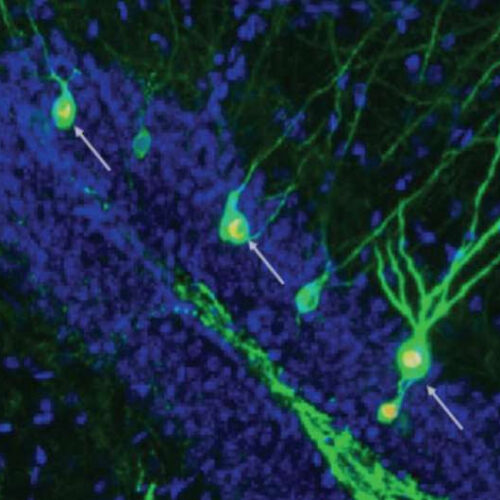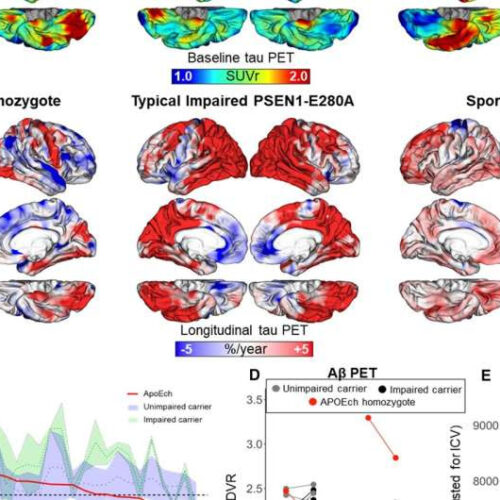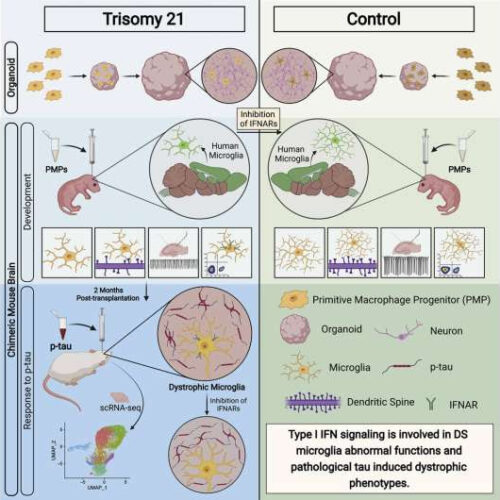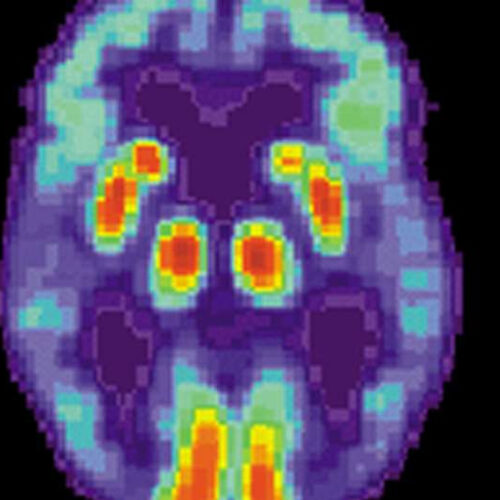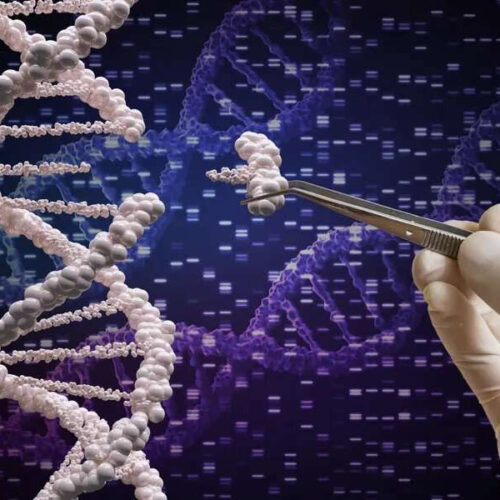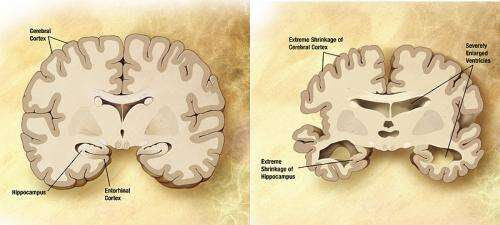by Rockefeller University Press The new study shows that boosting neurogenesis increases the number of newly formed neurons involved in storing and retrieving memories (arrows) in the hippocampus of mice with AD. Credit: Mishra et al. Researchers at the University of Illinois Chicago have discovered that increasing the production of new neurons in mice with Alzheimer’s...
Tag: <span>Alzheimers</span>
An Alzheimer’s-defying brain offer clues to treatment and prevention of dementia
by Massachusetts General Hospital Longitudinal tau PET imaging measures in an APOE3ch homozygote. A Surface rendering of tau PET (Flortaucipir) images (standardized uptake value ratio, SUVr), at baseline, 3-year follow-up (center), and B rate of change (expressed as %/year), in the APOE3ch homozygote, (left) a typical PSEN1-E280A impaired carrier (center) and a sporadic AD case (right)....
Scientists reveal new evidence of key mechanism in Alzheimer’s
by Rutgers University Graphical abstract. Credit: Cell Stem Cell (2022). DOI: 10.1016/j.stem.2022.06.007 Rutgers scientists have found more clear-cut evidence of how the destructive proteins linked to Alzheimer’s disease attack human brain cells and destroy surrounding tissue. In one of the first studies of its kind examining human brain cells grown in a mouse brain, researchers identified a pivotal mechanism that...
COULD TREATING GUM DISEASE SLOW ALZHEIMER’S?
The bacteria, fusobacterium nucleatum (F. nucleatum), proliferates in periodontal disease and affects the gums and jawbone. If untreated, it results in unstable teeth and tooth loss. In recent years, studies have linked F. nucleatum to conditions ranging from colorectal cancer to premature delivery of babies. “In this study, our lab is the first to find that Fusobacterium nucleatum can generate systemic inflammation and...
10 Early Signs of Alzheimer’s and Dementia
Written by Cherilyn Cecchini, MD | Reviewed by Katie E. Golden, MDPublished on June 2, 2022 Key takeaways: There are many different types of dementia, but they all cause forgetfulness, trouble thinking clearly, and difficulty controlling emotions. Alzheimer’s disease is the most common type of dementia. Early signs of Alzheimer’s dementia include new memory loss,...
Alzheimer’s: 6 aspects of the condition that are often misunderstood
A new article describes common misconceptions about living with Alzheimer’s disease. FG Trade/Getty Images A diagnosis of Alzheimer’s disease and the early symptoms associated with the condition can sometimes cause feelings of frustration, anger, or social withdrawal. Stigma and misperceptions about Alzheimer’s disease can negatively impact social interaction between friends and family members and individuals...
Overlooked proteins may be key to better diagnosis of Alzheimer’s
UNIVERSITY OF CALIFORNIA – SAN FRANCISCO In a new study of Alzheimer’s disease, researchers at UC San Francisco have discovered that a relatively unstudied form of the tau protein associated with neurodegeneration may be a means for better diagnosis and treatment of the disease. The form of tau, which is broken into fragments that accumulates...
Experimental drug reverses synaptic loss in mouse models of Alzheimer’s
by Bill Hathaway, Yale University PET scan of a human brain with Alzheimer’s disease. Credit: public domain An experimental drug restored brain synapses in two mouse models of Alzheimer’s disease, raising hopes that it could help revive cognitive function in human dementia patients, Yale University researchers report June 1 in the journal Science Translational Medicine. While...
Mutant gene stops at-risk people from getting Alzheimer’s: Could it lead to treatment?
by Dennis Thompson The APOE4 gene is the most powerful genetic factor driving a person’s risk for developing late-onset Alzheimer’s disease. “It probably increases your risk two or threefold if you have one APOE4 copy, and if you have two APOE4 copies, it probably increases your risk about tenfold,” said Dr. Michael Greicius, a professor of...
Researchers may have found the missing link between Alzheimer’s and vascular disease
by Columbia University Irving Medical Center Diagram of the brain of a person with Alzheimer’s Disease. Credit: Wikipedia/public domain. For more than 20 years, scientists have known that people with hypertension, diabetes, high cholesterol, or obesity have a higher likelihood of developing Alzheimer’s disease. The conditions can all affect the brain, damaging blood vessels and leading...

